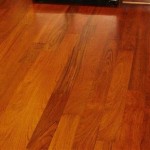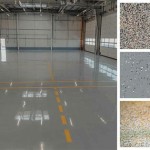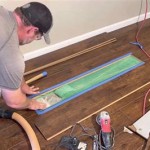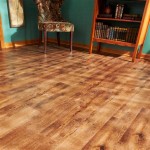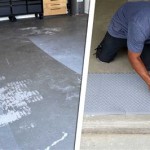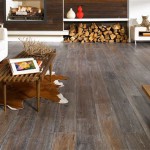Can I Use Treated Plywood For Subfloor?
Treated plywood is a type of plywood that has been treated to resist rot and decay. It is often used for outdoor applications, such as decks and patios. However, can treated plywood also be used for subfloors? The answer is yes, but there are some important things to keep in mind.
First, it is important to understand the difference between treated plywood and untreated plywood. Treated plywood has been impregnated with chemicals that make it resistant to rot and decay. Untreated plywood, on the other hand, has not been treated with any chemicals. As a result, untreated plywood is more susceptible to rot and decay.
When it comes to subfloors, treated plywood is a good option because it is resistant to rot and decay. This makes it a good choice for areas that are exposed to moisture, such as bathrooms and kitchens. However, it is important to note that treated plywood is not waterproof. If you are installing treated plywood in an area that is likely to be exposed to water, you should seal it with a waterproof sealant.
In addition to being resistant to rot and decay, treated plywood is also strong and durable. This makes it a good choice for subfloors that will be subjected to heavy traffic. However, it is important to note that treated plywood is more expensive than untreated plywood. As a result, you may want to consider using untreated plywood for areas that are not exposed to moisture or heavy traffic.
If you are considering using treated plywood for your subfloor, be sure to talk to a qualified contractor. They can help you determine if treated plywood is the right choice for your project and can also help you with the installation process.
Here are some additional tips for using treated plywood for subfloors:
- Use a minimum of 3/4-inch thick plywood for subfloors.
- Install the plywood with the grain running perpendicular to the joists.
- Leave a 1/8-inch gap between the plywood sheets to allow for expansion and contraction.
- Nail the plywood to the joists with 8d nails spaced 6 inches apart.
- Seal the plywood with a waterproof sealant if it will be exposed to moisture.
By following these tips, you can ensure that your treated plywood subfloor will be strong, durable, and resistant to rot and decay.

Best Bathroom Subfloor Material At Improvements

Pressure Treated Plywood Theplywood Com

Installing Wood Subfloors Over Concrete Hardwood Floors

Is Pressure Treated Wood Right For You

Plytanium S I Floor Plywood Subfloor Panels Georgia Pacific

Plytanium S I Floor Plywood Subfloor Panels Georgia Pacific

Prowood 3 4 In X Ft 8 Tongue Groove Underlayment Pressure Treated Plywood 376213 The Home

Which Wood Is Best For Flooring Easiklip Floors

Pressure Treated Lumber Raised Floor Living Pro

Installing Wood Flooring Over Concrete Diy
See Also
